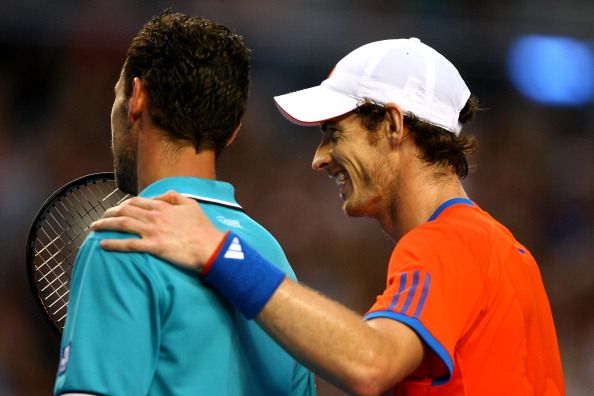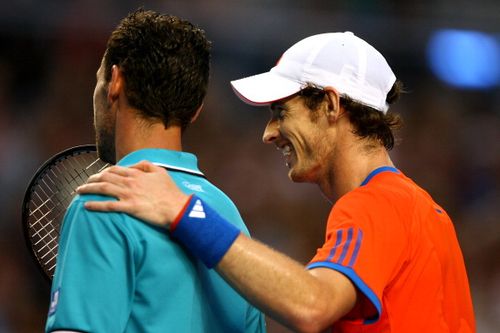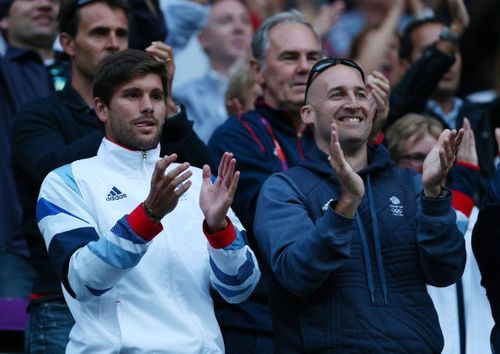
Ivan vs Greg: Different sports, diverse strategies

Forget about how Andy Murray moves on the court, hiring Ivan Lendl has proved to be the smartest of all his moves. The choice paid him big time. The Scot is now officially 2012 US open champion. Not less than a year of association with the Czechoslovakian great ensured that he got what he badly wanted. The relationship between the trainer and the student was at its impeccable best here, we must say.
As the legend goes, spotting Arjuna aiming for the target with arrows, even in the dark hours of the night, his tutor Dhronacharya, fascinated by his pupil’s interest, vowed to make him the greatest archer in the world. It is the duty of a teacher to understand the expectations of his student and shape his career accordingly. Dhronacharya did precisely the same to Arjuna. He did not intend making him the best in handling a mace or a sword. He made him an exponent in hurling arrows just because his disciple liked it.
This is how a teacher should train his student. In spite of coaching a player for the first time in his life, it seems Lendl has this theory imbibed in his mind. If you had listened to the Czech after his trainee lifted his first grand slam title, you get the feeling that he had more than a fair idea of what his student wanted from him. Both Murray and Lendl did not fail to trade compliments with each other at the end of the final, which clearly shows that the relationship between the two was tailor-made for a strong coalition. Knowing a student, gaining his confidence and commanding respect are some of the traits which should be looked upon as necessary prerequisites for a tutor.
When any one of those features is found absent, then the relationship will go for a toss, something which we witnessed when the Indian cricket team was under the regime of Greg Chappell. The team, with Sourav Ganguly as its skipper, was doing pretty well when the Aussie took charge as the coach of the team. The idea behind appointing a shrewd chap like the Australian to guide a team, the members of which were not known for assertiveness, was something to be considered irrational. Those who have followed the Aussie would tell you he had never been the one who was interested in earning a “Nice Guy” image. He was the one who urged his younger brother Trevor to bowl an underarm delivery against New Zealand in the last over of a match to ensure his team did not lose.
Such a cricketer was entrusted with the job of coaching the team with strong recommendation from the prince of Kolkata himself. It is always difficult for two egos to co-exist. Ganguly himself was the sort of human who never liked taking orders from anyone. His coach, on the other hand, was someone who loved directing people with authority. Logically speaking, a captain of a team was someone who should be given free hand to decide on his team. The coach’s job should end at correcting the mistakes and providing expertise. But Chappell, as a coach of the team, started getting involved in internal decisions of the team, which led to the spat between him and Ganguly.
Chappell went too far by writing a letter to BCCI stating the Kolkata batsman was unfit to lead the team in 2005 which got eventually leaked to the public. Though the BCCI called the duo in person to bring in some unity, the cold war between the two kept on going. The Aussie gained an upper hand soon when the form of the “off side genius” took a downward trend. He made sure that the person who was treated as a demi god in Kolkata was dropped not only from the captaincy but also from the team. Later on, when Ganguly was reinstated in the team, which was captained by Dravid, the 2007 world cup arrived.
Starting as one of the strong favourites to win the cup, the team suffered a shocking defeat at the hands of Bangladesh. The divide and rule policy which Greg Chappell adopted earlier was, it could be said, as one of the reasons for the disgraceful defeat as the team never seemed to gel as a unit for some time. That was Chappell’s era, which led to the downfall of a side filled with superstars and made it look a mediocre one in the 2007 world cup in the Caribbean islands.

Coming back to the Andy – Lendl combination, we see the exact opposite. The Czech, when approached by Murray to be his coach, was readily happy to assist him. He never tried to dominate the learner in the Scot. In fact, Lendl, even after training the man who won the US open title, chose to give all applause to his pupil rather than crediting himself with anything. He said he always believed Murray to win a grand slam title since he has the talent to do it. All he said was that he worked with him to work out ways against the big shots as to how to beat them. When a journalist asked him to elaborate, he said he should not be doing it as the margins between the top four guys were very little and he did not want to give anything away in the press conference, which could only harm his trainee. This was how a coach should gain confidence.
A petty issue which could have been solved internally was brought to the public due to the letter circulated by Greg Chappell when he was the coach of the Indian team. But in case of Lendl, he chose not to disclose the plan which he devised alongside Murray, thereby keeping it confidential. This meant he is so dedicated in his job as a coach and he loves doing it.
The story of Greg Chappell and Ivan Lendl can be taken as a case study. Mcgregor, a management expert, says there are two types of managers. One is called Mr.X and the other is called Mr.Y.
These are some of the assumptions of Mr.X.
- The employees are lazy and they dislike work.
- They should always be closely supervised and monitored every time.
- Only by threat and punitive measures, one can have control over them.
Due to such preconceived notions, there will always be a hostile environment, which is not suitable for freedom of work. The employees who work under such managers would live with fear and even in case of any inadvertent errors which happen, they would choose to hide it from the top authorities, fearing punishments. The negative things such as blame games and enmity would emerge from such an atmosphere.
Now let us see about Mr.Y. Mr.Y also has his own presumptions.
- The employees are ambitious.
- They are self motivated and committed to work.
- No need to instill check points at every level to monitor the employees.
As a result of such a positive approach, the relationship between the employers and employees will be friendlier. The employees need not work under fear and so they will be free to express what they want. In such an environment, management will stand to benefit, which would not be the case with the strategy adopted by Mr.X, where management would fail at every level.
Now, it is not required to elaborate who among Chappell and Lendl has adopted either one of those strategies. The Aussie had quite frequently intervened in the internal affairs of the team, trying to bully them, monitoring everything closely. So, he never had a cordial relationship with the team or at least with its captain. In the end, not only did he lose his job, but due to the high handedness of his approach, the team which he coached also had to face humiliation in the world cup in the West Indies. In short, he behaved like Mr.X.
The Czech behaved like a perfect manager with positive notions about his student. He was happy with his trainee’s skills and so he had a friendly relationship with him. He gave assistance to the Scot whenever he required advice from him. Staying stoic all throughout his tenure this year, he never lost his cool though Murray was able to win only a lone title prior to Olympics. He believed this would happen automatically as Andy had the ability to make it work for him. As a result, Murray got the grandest prize money of all by conquering New York.
Keeping things simple does work, don’t they?